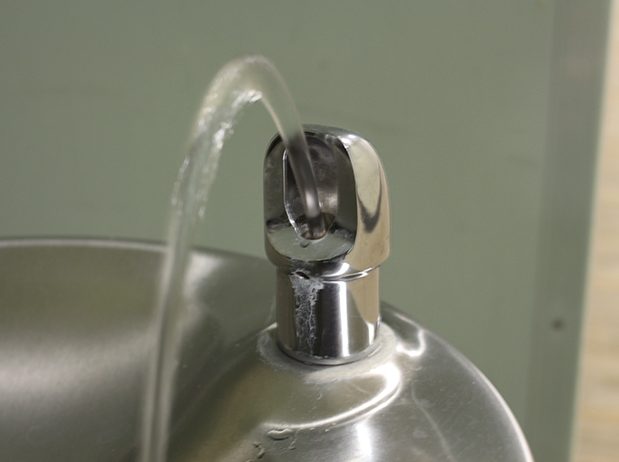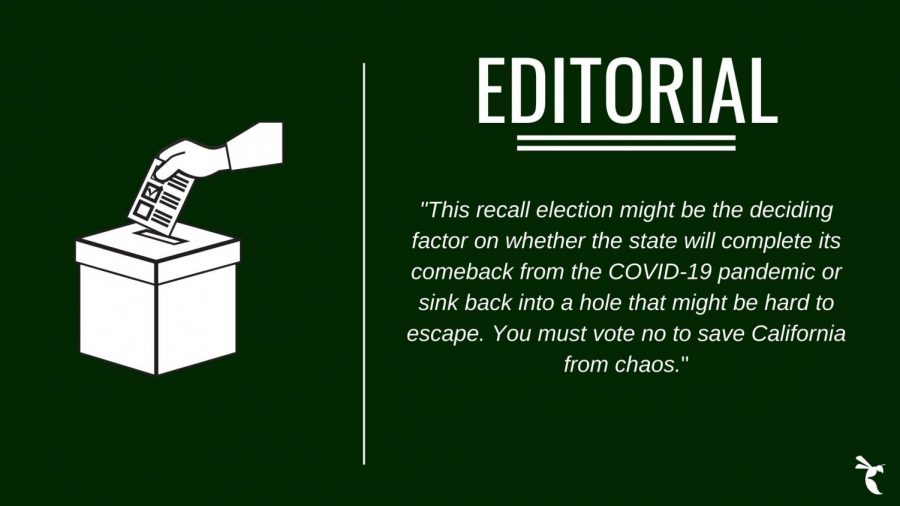Ten percent of Sacramento State’s fountains and sinks remain untested for lead, and the administration and its hired consultant have been avoiding answering questions about when they will be tested and even where they are located.
If the students, faculty and staff are to have confidence that the administration takes their health seriously, this behavior needs to stop.
In January, a research project comprised of professors and students tested 449 (90 percent) of the university’s water sources and discovered that 58 (12.9 percent) of those had excessive levels of lead, including 27 (6 percent) that were above the EPA action level of 15 parts per billion.
The school shut off those water sources and began to distribute water and provide blood tests for free. It also hired a consultant to provide a plan for performing tests on the remaining water sources.
So far, so good — until consultant Alex Spataru wouldn’t answer questions from The State Hornet about when the testing will take place, what the process will entail and whether he or his firm have worked on a similar project at a college or university before.
Spataru did say that he would be able to give information when he returns to campus in March after he visits Germany for another consulting job.
Steve Leland, the director of environmental health and safety, also wouldn’t answer the questions posed to Spataru, after referring The State Hornet to Spataru. Neither would Elisa Smith, the school’s director of news and communications.
Now, project leader Jill Parker, interim senior director for risk management services and chief risk officer, said in an interview Tuesday that it is her opinion that “it is not prudent to assume a problem when you don’t know one exists.”
It is already established, though, that a problem already exists; if one didn’t, Spataru would not have been hired, and Parker wouldn’t have been asked these questions.
If a problem didn’t exist, Parker wouldn’t have felt the need to hire another consultant group to do what the research group has already done, and what Spataru has already done.
Apparently, nobody within the circle of those working on this project is willing or able to tell when the other fountains will be tested or what fountains specifically haven’t been tested.
In the meantime, the untested water will remain flowing and without anything to let students know that it may be contaminated.
Leland did say the day the news broke that the untested sources included the American River Courtyard Suites and that “there may have been a couple of other random places.”
Though Parker admits a list of the untested sources exists by now, it has not been made public to the campus community, and will not be for fear of releasing information that is not “well thought-out.”
Between the first announcement and Feb. 14, the university did not answer any questions posed by our reporters; instead, the only thing offered was when public relations posted an update to the FAQ on the situation.
The update is threadbare of any useful information; all it does is name Parker as also being involved in the process. When Parker was called Feb. 13 for any comments she may have, the call went unanswered.
The call back came from public relations employee Dixie Reid, who, in a voicemail, said the most recent information was the now week-old update. When Reid was called back four minutes later, there was no answer, and no call back.
And even when Parker called the next day, it was made clear that the university is holding itself accountable to only itself in this matter; not the students, faculty or staff that make up the campus community.
The school may be legally in the clear here, but not answering very legitimate questions about the safety of our drinking water doesn’t exactly inspire confidence on a campus that had to remove lead dust from Santa Clara Hall last semester and asbestos from the library over the summer.
Not being open and transparent about the potential that there is still contaminated water on campus also doesn’t bode well for Sac State’s reputation for concern over the environment.
Associated Students Inc., President Patrick Dorsey said that the administration may be withholding information in order to be accurate and that it is doing “everything it can” to fix the situation.
If that’s true, good. But there has been zero indication from those in power that this is true: students still don’t know if the fountains they’re drinking from are tested or not, or when they will be tested.
We would remind Dorsey that he was elected to represent the students, and not parrot the university’s neatly outlined talking points.
Common sense would dictate that the school could remove the uncertainty over its intentions by simply saying that something is unclear rather than not answering questions at all.
Ethically speaking, Sac State does not have a stronger obligation than to provide an educational space for students that everyone can be comfortable knowing is safe.
If we are to know that, then it is time for this administration to give us, and you, some answers.
An earlier version of this story misspelled Dixie Reid’s surname as “Reed.”
































































































































